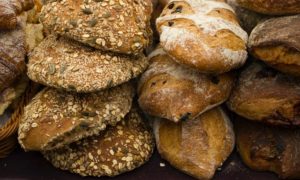Macronutrient Metabolism
Our bodies are made up of so many components, rather than just one. From being 64% water to 16% proteins, it is 16% fats and about 1% carbohydrates. These all are known as macronutrients.
Macronutrients are the essential components needed by the body to function smoothly.
Sure we ingest a lot of these macronutrients by way of food that we eat, but have you ever wondered how our body converts this food and macronutrients for its use?
This is where the metabolism of the macronutrients comes into play.
What Is Metabolism?
Everyone has heard about metabolism and many of us have this random and vague idea in our minds that metabolism has something to do with weight loss or how fast we can digest food
It is indeed partly true, but basically, metabolism can be termed as chemical reactions happening inside every cell.
Metabolism can also be defined as a property of our body that breaks down food to use it as a form of energy.
Macronutrients
We consume a diet full of nutrients every day. The main nutrients needed are – proteins, carbohydrates, fats, vitamins, and minerals,
These nutrients are divided into two categories :
- Macronutrients – proteins, carbohydrates, fats
- Micronutrients – Vitamins and minerals.
Macronutrients are called so because they are needed in much larger quantities as compared to the other nutrients, by the body.
They are the main source of energy for our body.
But, the ideal way for macronutrients to be metabolized and used is – together.
If you keep consuming only proteins, no doubt your body will be fueled for some time but you would get fatigued rather quickly as compared to when you will consume proteins with carbs and fats.
Hence, it is essential to consume these macronutrients in proper proportion for their metabolism to prove beneficial for the body.
Why Do We Need Proteins?

Proteins are said to be every fitness freak’s best friend. However, proteins are not just to build muscles.
They are very necessary for every individual of every age group to have a healthy body.
The main function of protein is the growth and repair of the cells of the body. Proteins are not only absorbed by the cells in our muscles, but also by the neurons and other cells in our body.
Protein helps in repairing the body cells after wear and tear and also helps in the growth of the body.
Metabolism of proteins includes many complex biochemical processes like catabolism and anabolism and protein synthesis, after which the body uses it for its function.
Protein-rich foods like lean meats, poultry, dairy products, tofu, lentils, chickpeas, and green peas can be consumed to fulfill the protein needs of the body daily.
Why Do We Need Carbohydrates?

Carbohydrates are very commonly found in almost all foods.
Carbohydrates are a nutritional category of sugars, starches molecules, and fibers and are found abundantly in fruits and vegetables, dairy products, grains and are part of a basic food group.
The body metabolizes and breaks down carbohydrates to form sugar or glucose.
The main function of carbohydrates is to provide energy to our body to complete our simple day to day tasks.
It is also responsible to keep the brain energized throughout the day.
Another type of carbohydrate is fiber, which is found in raw fruits and vegetables. Fiber helps in keeping the digestive system functioning intact and smooth.
Adding Fiber to the diet helps decrease the risk of diabetes and heart diseases.
Foods rich in carbohydrates and fiber include starchy vegetables, legumes, dairy products, and whole fruits.
Why Do We Need Fats?

Fats have been misunderstood largely. They have always been associated with obesity and an unhealthy body and are very commonly omitted in the diet.
But that should not be the case.
Fats are as essential as proteins and carbohydrates, even though in a lesser amount – they still constitute a macronutrient.
Fats metabolism is carried out by breaking the complex ingested fats into fatty acids, simpler fat, and glycerol, which is then used by the cells and tissues of the body easily.
The cells use fats as a source of energy.
The main function of fat is to provide fuel to the body. Fats work best when consumed with proteins and carbohydrates.
Healthy fats found in ghee, Nuts, kinds of butter, sesame seeds, pumpkin seeds, etc. can be consumed moderately to fulfill the body’s daily needs for fats.
Macronutrients are the main supplements of the body and should be a part of your diet without fail.
Of course, overdoing anything always causes more harm than good, and the same is with macronutrients.
Having a balanced diet will help you gain positive effects of macronutrient metabolism.

